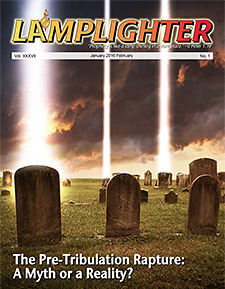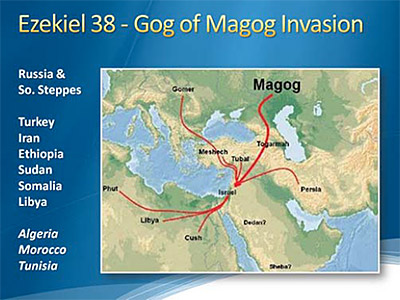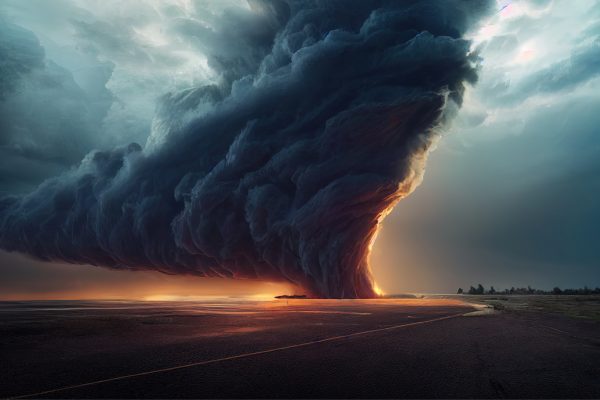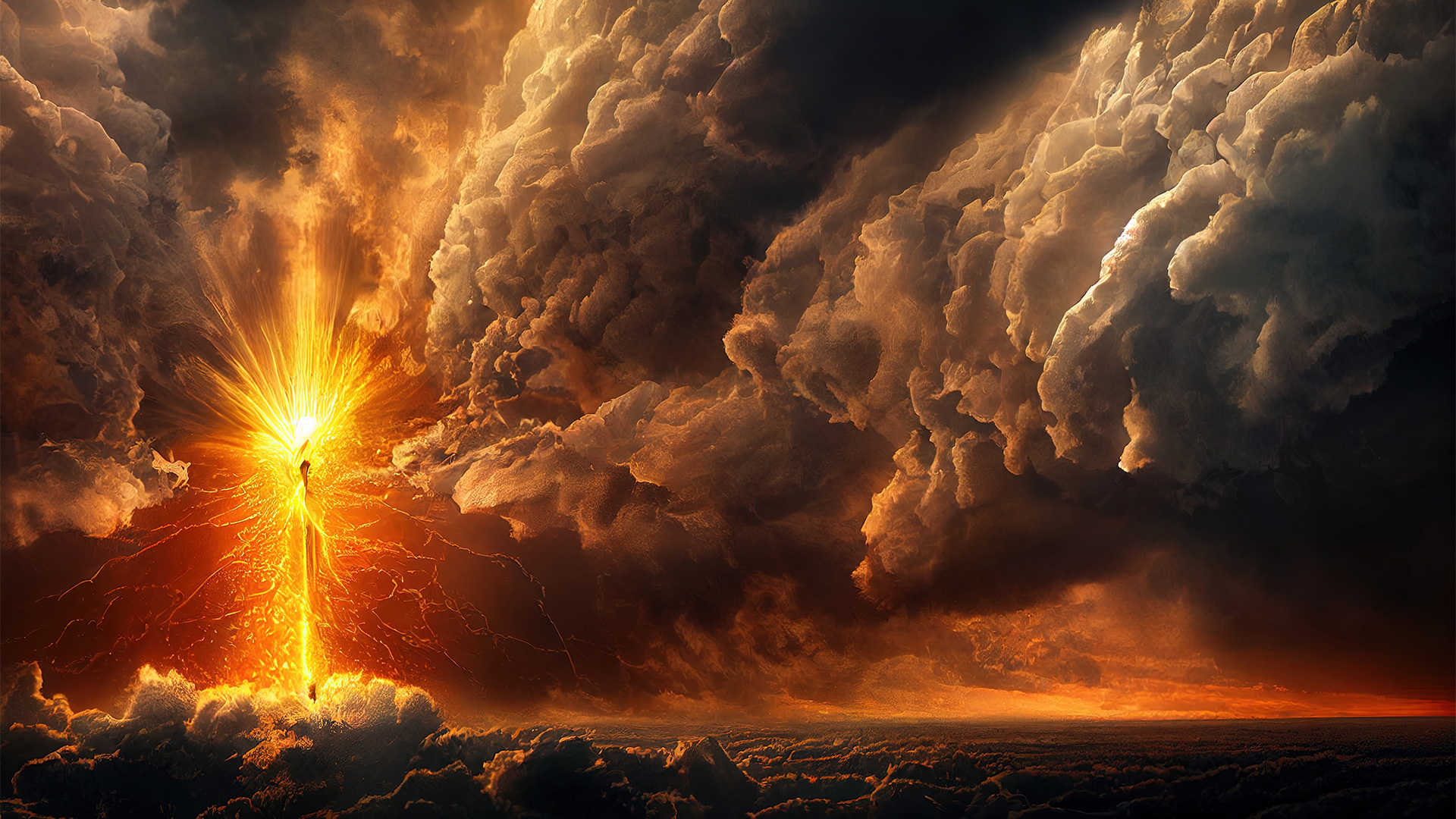Another Thousand Years Before Gog?
A Prophetic Interpretation
By Nathan Jones

“Whatever Russia’s presence might mean today, we know Gog won’t show up for at least another thousand years!”
This bold exclamation was made by author Brian Hennessy in response to the opening question he posed in a recent article for Israel Today magazine: “Do we need to worry about Gog and Magog?”1 Following a resounding no, he also adds that anybody who may be concerned that a prophetic war by that name is currently brewing between a great coalition of Islamic nations led by Russia against an unsuspecting Israel are, he chides, needing to “reconsider some things” because their concern is “completely misplaced.”
The Gog–Magog War
First off, what is this Gog that Mr. Hennessy is writing about? According to the 2,600 year old prophecy found in Ezekiel 38–39, Gog is the “prince of Rosh,” with Rosh being the ancient name for the Russian people. Whether Gog is a prophetic designation, a demon or a man, this covetous leader from Russia will be pulled with “hooks” by Yahweh out of the “remote parts of the north” to march his army south against Israel for the purpose of plundering her (Ezekiel 38:1–12). Gog’s specified allies are the modern–day nations of Turkey, Iran, Libya, the Sudan and the half–dozen ‘Stan nations. They form a horde so massively powerful that Israel has no chance of surviving.
Gog is in for a surprise, though, for this incursion is all part of Yahweh’s plan to gather Israel’s enemies on the “mountains of Israel” in order to “execute judgment upon him [Gog] with plague and bloodshed…torrents of rain, hailstones and burning sulfur on him and on his troops and on the many nations with him” (38:22). Yahweh’s purpose for personally causing the supernatural destruction of the invading armies is not just to satiate His wrath, but “so I will show my greatness and my holiness, and I will make myself known in the sight of many nations” (38:23).
Russia today has thrust itself into Middle East politics in Syria’s civil war and is in the process of creating a coalition of Islamic nations whose every breath is to cry out for the destruction of Israel. But, no — according to the article’s author — this spectacular war will not be a current–era event. Instead, he points to Revelation 20:7–9 and places the Gog–Magog War at the end of the Millennial Kingdom: “When the thousand years are over, Satan will be released from his prison and will go out to deceive the nations in the four corners of the earth — Gog and Magog — to gather them for battle. In number they are like the sand on the seashore.” Hence, Mr. Hennessy’s admonition that people today should not be concerned that current Middle East tensions are brewing up a Gog–Magog War.
Comparisons
Is it biblically correct to equate Ezekiel’s prophecy with the Apostle John’s prophecy, the latter a prophecy which clearly occurs at the end of Christ’s thousand year reign? After all, both accounts describe a great number of invaders led by Gog and Magog. And, Israel’s riches that Gog covets could have come from the Lord’s blessings during the Millennial Kingdom. Also, in both accounts Yahweh uses supernatural methods to destroy the invaders. But, those are as far as the similarities between the two accounts go.
The fact of the matter is that the differences between Ezekiel 38–39 and Revelation 20 are many. For one, the Ezekiel war in chapters 38–39 is followed by chapters 40–48 which describe the Millennial Kingdom. In contrast, Revelation 20 describes the Millennial Kingdom and is immediately followed by chapter 21 describing the Eternal State.
Second, the invading rulers do not match. Gog is in control of an Islamic coalition against Israel in Ezekiel’s account, whereas Satan is in control of a global coalition against Jesus in Revelation’s account.
Third, the invading armies do not match. Ezekiel describes a coalition of Russia and Muslim nations attacking Israel. Revelation’s scope is much larger, with the invaders coming out of the “nations in the four corners of the earth.”
Fourth, the battlefields do not match. The Ezekiel war occurs on the “mountains of Israel,” while the Revelation war is “on the broad plain of the earth.”

Fifth, Israel’s faith in God does not match in the two accounts. Ezekiel 36–39 describes a newly reborn nation of Israel that has yet to have put their faith in God’s Son. The Revelation 20 account has Jesus physically reigning on earth over a believing remnant of Jews for a thousand years.
Sixth, the Ezekiel account says that Israel will spend seven months burying the bodies of the dead soldiers (Ezekiel 39:11–12). But Revelation 20:9 says the bodies of the invaders will be incinerated by fire from heaven. Furthermore, since the Revelation battle occurs at the end of the Millennium, the invaders’ bodies will be immediately resurrected and judged at the Great White Throne Judgment, after which they will be consigned to Hell (Revelation 20:11–15).
Seventh and last, the Ezekiel account portrays Israel burning the invaders’ weapons for seven years (Ezekiel 39:9). This could not occur after the Revelation war since it will be at the end of the Millennium, after which God will consume the earth in fire in order to reformat it into the new, eternal earth.
Conclusion
Since the two accounts are so clearly different, there are in truth two Gog–Magog wars, one that occurs in the prophetic “latter days” leading up to the Tribulation and a second war at the end of the Millennial Kingdom. John is either using the term “Gog and Magog” in Revelation 20 to draw a comparison between the two epic wars, or possibly even inferring that Russia will once again be the leading nation when Satan brings a worldwide coalition against Jesus at the end of the Millennium.
So, should people be worried? In the Ezekiel account, God is portrayed as focusing on Israel when He reveals Himself so obviously to the world, which sounds very much like a post–Rapture event. Church Age believers, I believe, will have already been raptured and so will not witness Ezekiel’s cataclysmic war, and therefore should not be concerned. But, unbelievers left behind by the Rapture certainly will see it and so should be very worried.
Knowing that, where do you stand with Jesus Christ?
Notes:
1) Brian Hennessy, “Do We Need To Worry About Gog and Magog?” www.israeltoday.co.il/NewsItem/tabid/178/nid/27599/Default.aspx.




